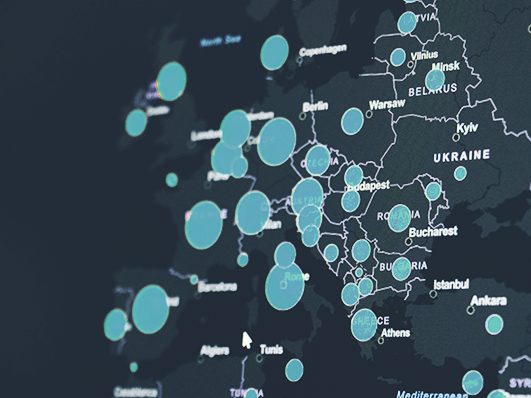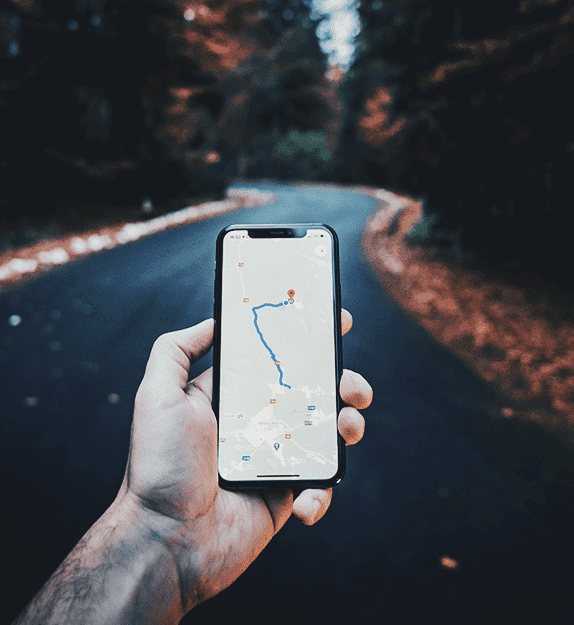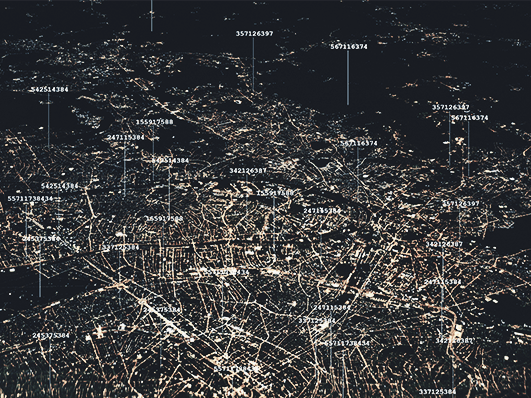New: Flexible service plans for Myra WAF. Learn more!
Home>
Geoblocking und Geotargeting
02
How does geoblocking and geotargeting work?
The basis for most localization methods is the assignment of an IP address or a MAC address to the geographic location of a computer or mobile device connected to the Internet. The assignment includes a whole range of information, such as countries, regions, cities, and the corresponding latitudes and longitudes as well as data about the Internet service provider and the domain name. Different methods and technologies are used for the matching:
GEO-DATABASES WITH API
Commercial providers store the localization data for IP addresses in large databases. Service providers can retrieve the information automatically via an online interface (API) and thus extend their products with the functions described above. Free databases for the localization of IP addresses are also available. The accuracy of the offerings – both paid and free services – varies depending on the purpose and area of use. In general, the error rate of the databases increases with increasing precision specifications – for neighboring cities or regions, errors can therefore often occur. Since a country-specific distinction is perfectly sufficient for most Internet services, this weak point is of less importance.
HIGH-PRECISION GEOTARGETING USING WI-FI, BLUETOOTH AND GPS
In the case of mobile devices, radio modules allow precise localization via Wi-Fi, Bluetooth and GPS, which even makes it possible to pinpoint users inside buildings. The precise localization of mobile devices is used, for example, for indoor navigation in large building complexes such as airports, shopping malls or even parking garages. Operators of shopping malls and supermarkets can also use the positioning to conduct practical market research to draw conclusions about the popularity of individual products. In addition, precise geotargeting also allows targeted advertising on customers’ devices. Store operators can use push notifications to inform their customers about current promotions in nearby stores.
04
How can geoblocking be circumvented?
The technical implementation of blocking, which is mostly carried out by providers, is also often criticized. For technically experienced users, blocking via DNS is hardly an obstacle. Using VPN proxies, the Tor network or alternative DNS providers, country blocks can be circumvented with just a few clicks. Streaming providers have therefore already started to block individual VPN services on their portals to at least prevent this workaround.



